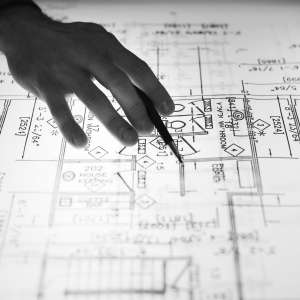
Do you like paying a monthly premium for your insurance? The answer is probably not. No business owner that we ever talked to is excited about the prospect of paying additional monies for something that you don’t see immediate and tangible benefits from. However, what you are paying for, of course, is peace of mind.
As an engineer with your own consulting business, you have likely heard the term “liability insurance” more than once. Whether you are just starting out on your entrepreneurial journey or have been in business for a while, the subject of insurance tends to come up often in various situations.
- For example, a vendor might have specified in the contract bid that “you need to show proof of liability insurance.”
- Or maybe your CPA advised that you get a liability policy to protect yourself from third-party professional claims.
- Or maybe one of your business contacts shared that their liability policy covered their slip and fall claim and you need to make sure you purchase one too.
The above examples refer to different types of policies, yet all of them use the same language. It is imperative to understand that a liability policy term does not refer to a specific policy. It refers to a policy type.
So what does a liability policy cover? It covers claims against you by a third party due to wrongful actions or negligence that caused them harm. The two main types of liability policies you will encounter are a General Liability policy and a Professional Liability policy for engineers.
In this blog post, we will focus on explaining the ins and outs of the engineer Professional Liability policy, what it covers, and how it differs from its’ counterpart – the General Liability.
Purchasing the wrong policy can result in a missed business opportunity, a rejected contract bid, or an uncovered claim.
Are you ready to make sure that you are protecting your business effectively?
If so, let’s get to it!
What is Professional Liability insurance?
This type of insurance is known in the insurance world as an Errors and Omissions (E&O) insurance as well as a Professional Liability insurance.
Engineers’ E&O insurance covers you against the lawsuits that a third party might bring against you for damages incurred resulting from your professional wrongdoing. This is a crucial distinction as the policy will not cover general claims such as slip and falls. The wrongdoing has to be related to your profession.
Examples may include –
- Design error by a mechanical engineer
- A bad recommendation by a civil or structural engineer
- A poorly written software program by a software engineer that left the program vulnerable to a virus
An engineer Professional Liability policy covers your claim up to a specified limit. It covers the cost to defend the claim, attorney fees, miscellaneous legal costs, and of course, a settlement. It’s important to note that your claim will be defended whether or not it is a nuisance lawsuit that has been brought up against you, as long as it falls under the definition of “professional wrongdoing.”
So how is it different from a General Liability policy?
As the name implies, the General Liability policy covers general claims. These may include a slip and fall injury to a customer at your office; property damage to your vendor’s business property, etc. Both of these policies are important and should be considered carefully for your business needs.
Why do I need engineer professional liability insurance?
Now that you know exactly what this type of policy covers, let’s talk about why it is imperative that you consider purchasing it (if you haven’t already).
In any profession, mistakes are unavoidable. We are all human, after all. As an engineer, any mistake you make can lead to devastating results. A collapsed bridge due to faulty design, an insufficient inspection of a construction site causing wrong advice, etc. These mistakes can cause millions of property damages and sometimes even lost lives.
Now, we know paying for an additional policy is a daunting prospect. But just think about it – it’s enough for one mistake to lead to a bad situation to quite possibly bring your operation to a screeching halt.
Do you have hundreds of thousands of dollars at your disposal to defend a lawsuit? If not, a Professional Liability policy for engineers is your answer.
How much does engineer professional liability insurance cost?
We can’t discuss the ins and outs of the Engineer Professional Liability insurance without touching on the subject of the cost. After all, the cost is an essential factor when purchasing a policy.
The minimum cost for the professional liability policy for engineers starts at around $1,500 in annual premium. This is only a starting point to give you an idea of the cost you can expect to pay. Many factors affect the cost of the policy.
1. Sales
One of the biggest factors in determining the annual premium for your Professional Liability policy is the total sales(or income) that your company operates on, including the revenue that every consultant in the company brings in. The higher the sales, the bigger the risk you present for the insurance company.
2. Company Size
The insurance company also takes into account the size of your company. The more people that are working for you, the higher the chance that one of them will commit a professional error, and thus, the policy will have to pay. The higher the risk for the insurance company – the higher your policy rate.
3. Specialty
Just like doctors have different specialties, so do the engineers. The type of engineering that you specialize in will definitely affect your rate. Insurance companies employ actuaries, who are the folks behind the scenes looking at all the past claim data across the industry and analyzing the potential risk, the severity of claims, claim frequency, etc. Some engineering specialties are inherently riskier than others since the so-called professional mistakes cause bigger damages and thus more expensive lawsuits that the insurance company needs to cover.
It’s important to note that while the cost is an important factor, it shouldn’t be the only factor in your policy purchase or even the deciding one. In the world of insurance policies, like in no other, you truly get what you pay for. If you compare two quotes and one is significantly cheaper then the other, be on a lookout for differences in coverage. The most common way for an insurance company to cut the premium is to cut corners on the coverage. This means when a lawsuit occurs, you might find out that you have limited or no coverage for some exposures. This can result in a significant out of pocket expense or even a denied claim.
Conclusion
As a business owner, you face making critical business decisions on a daily basis. One of such decisions is selecting and purchasing the insurance policies to protect yourself and your business.
Professional Liability policy for engineers that we discussed in this article, is one of the most effective techniques to protect your business from the consequences of a lawsuit. Let’s be honest. No matter how hard you work and how good you are at what you do – mistakes happen. And sometimes what happened wasn’t even your mistake. But if the client perceives the situation as your fault, they are likely to sue.
One of the most significant benefits of the E&O policy is that it defends you no matter what, even in the case of a nuisance lawsuit.
Another benefit of an E&O policy is a peace of mind both to you and your clients. It is becoming a standard practice to include a requirement for a Professional Liability in contracts so you will likely need to purchase the policy to get work.



